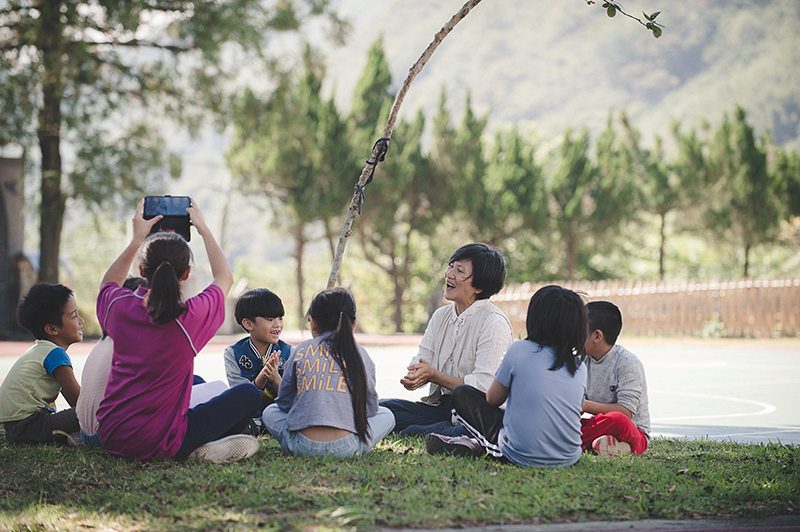
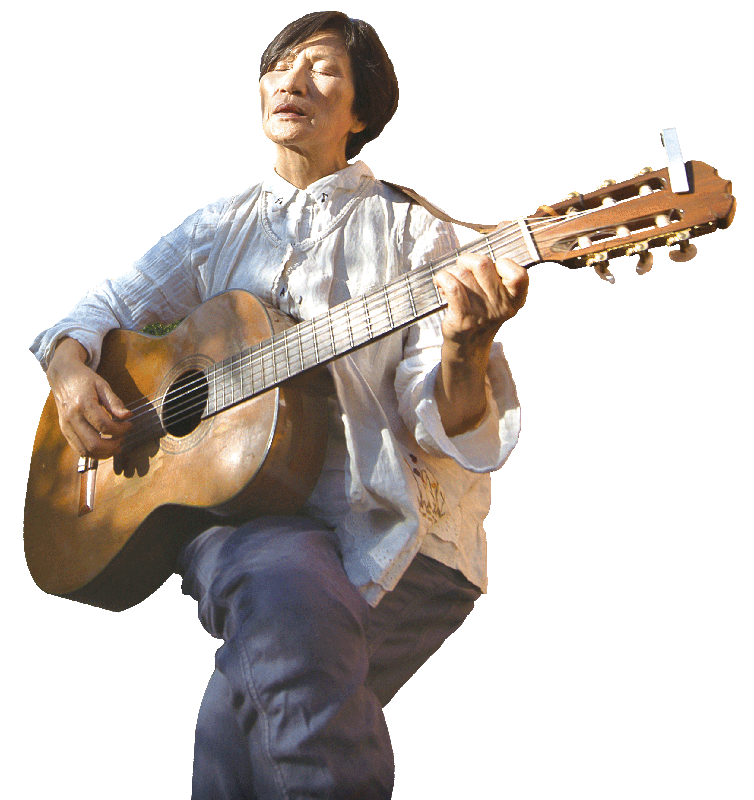
“There is NOTHING ROMATIC about my music, it’s all about the NATURE and EARTH.”
Once a repressed housewife, she only ever sang cover songs of foreign music with her talented vocal. After a root-searching trip, she was reborn though music and became not only a legendary figure in contemporary female music production, but an important heir to the language and culture of the Atayal people.
Sounds of reading in the native language can be heard coming out of a classroom in Klapay Elementary School in Hsinchu County. Inka Mbing stands on the stage, asking the children, “Ima lalu su (what is your name)?” The majority of the children answered with their Chinese name, only a handful could answer with their full indigenous name.
“These kids are all Atayal kids, but the books and picture books they read are all stories of the Westerners.” Walking along the tracks of Klapay Elementary School, Inka Mbing heaves out a sigh, “it is now or never in terms of passing on our culture and language.”
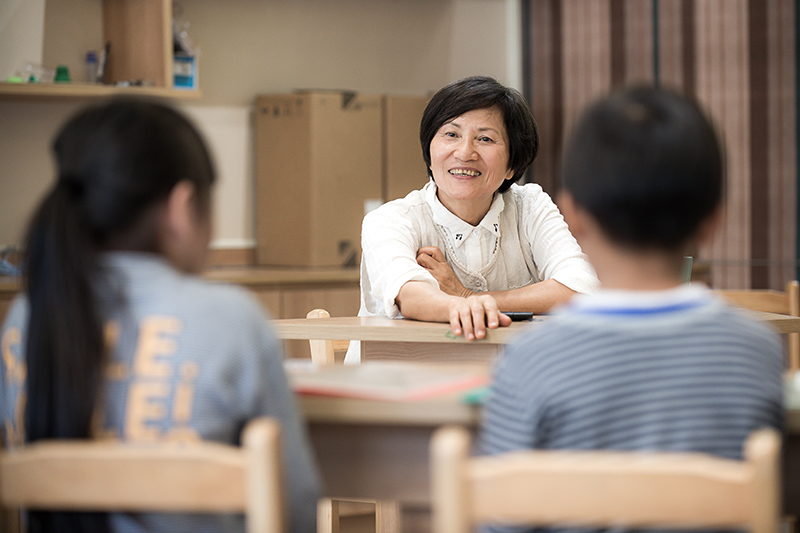
Suppressing Her Passion for Ethnic Movement
Stuck In the Stereotypical Role of a Housewife
Inka Mbing was raised by her grandparents growing up. In order to provide for the family, she left to work in the city very early on. In addition to being a resident singer in a western restaurant in Taipei, Inka Mbing was also the lead vocal in two bands. Gifted with a deep resonating vocal, she could wing any popular Chinese or foreign songs. To her, singing is a just way of making a living.
Having spent years in the city, Inka Mbing witnessed the countless injustice treatment suffered by her fellow indigenous peoples. After she got married with children, she formed the Taiwan Indigenous Peoples’ Right Advocacy Association with friends in order to fight for the rights of indigenous peoples. When the Taiwan Indigenous Peoples’ Right Advocacy Association was first established, there were many street protests. Inka Mbing would watch her friends take to the streets, holding up banners and yelling their demands. As strongly as she felt in side, she rarely stood on the front line.
“I was really emotional on the inside, but as a housewife, I must suppress my feelings and take care of my family first,” Inka Mbing explained. The Atayal is a patrilineal society, and it is the duty of women to manage the household and take care of their children. Even in the city, Inka Mbing is still trapped in the invisible framework instilled by her indigenous community. Her concern for the rights of indigenous peoples and her passion for the development of indigenous communities always stayed hidden deep within.
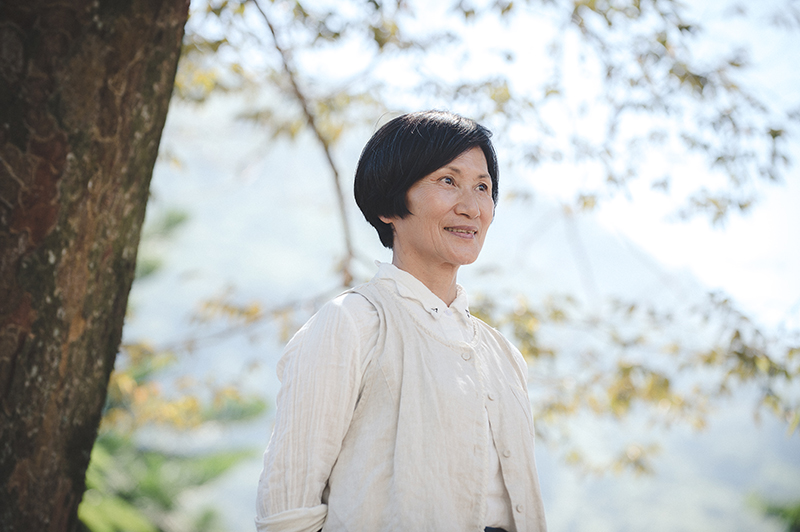
Searching for Her Roots
Ancestors Empowered Her to Break Free
「B’nuxsasba yen,Pucin kin-na ho lan,Kin ho-lanitaTayel,Gmiianitakwara……」
Once, by chance, she heard elders in the community chanting the “Ancestral teaching of the Atayal”. The Lmuhuw, a traditional way of Atayal chanting, mentioned that the Atayal people originated from the Masitoban Community in Renai Township, Nantou County, and that there was a giant rock.
The elders’ Lmuhuw brought her to tears, Inka Mbing immediately decided, “I must see that place for myself!” Inka Mbing drove through the night, heading straight for Nantou. When she stopped to asked for directions, local indigenous people warned her about the ancestors being mad because someone tried to move the giant rock not long ago, and cautioned her not to approach in case she got hurt. But her determination and faith won, and brought her to the giant rock.
It was early morning, and the giant rock was covered by a veil of fog. A power willed Inka Mbing to climb onto the rock, and she heard a familiar voice speak to her, “my child, you have finally come home.” In that split second, Inka Mbing felt herself becoming one with past ancestors, as if she herself was the old man singing the Lmuhuw on this rock all those distant years ago.
“If you want me to take action, please use me as your tool, I am at your disposal.” Even after so many years, Inka Mbing’s voice still trembled at the mention of her first conversation with the ancestors. On that day, Inka Mbing stood on top of the holy rock, and chanted the “Ancestral teaching of the Atayal” with her own voice and strength.
Ever since that day, Inka Mbing broke free from the traditional framework of stereotypical labor division by gender. The inspiration she gained from her search for root encouraged her to sing for herself, sing for Atayal women.
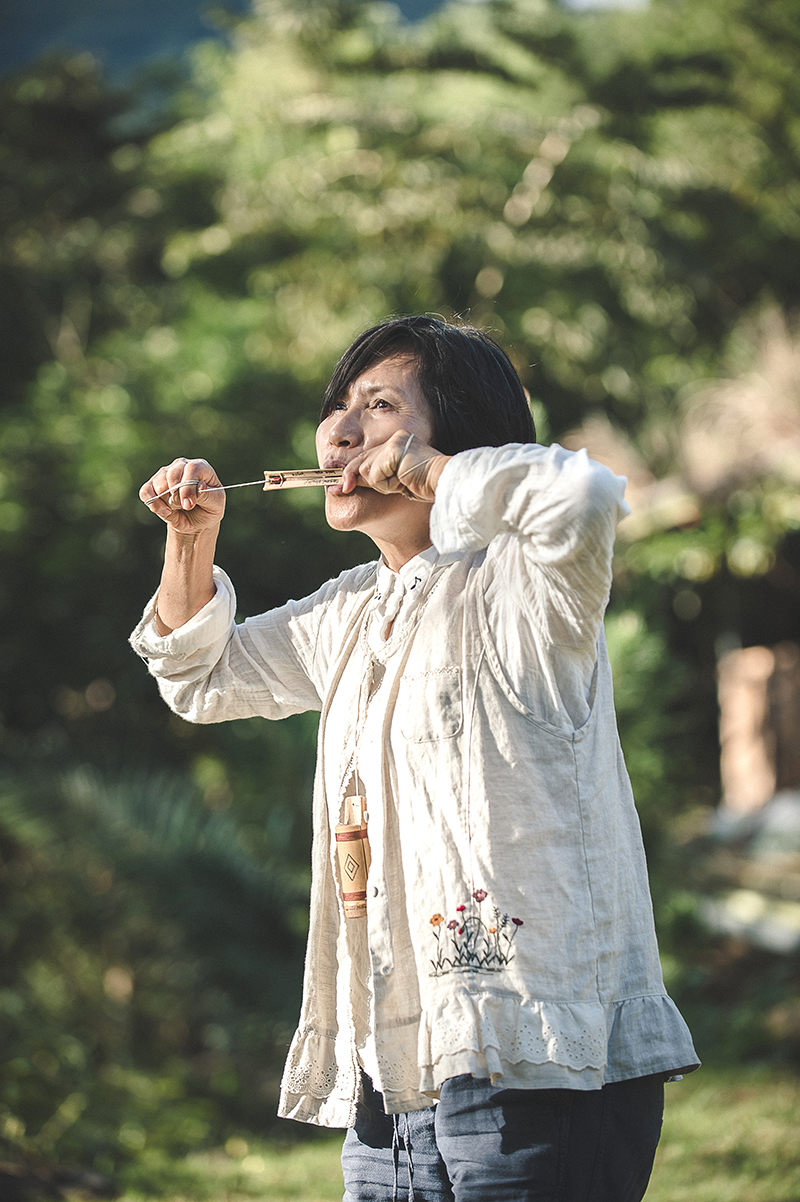
Reinterpreting the Lmuhuw from a Female Perspective
After the September 21 earthquake that devastated Taiwan, Inka Mbing and her band the “Flying Fish and Clouded Leopard” ventured deep into ground zero to help, and sang songs to bless the people there. Before each performance, she would put on traditional Atayal clothing, wear face tattoo, and pray for the ancestors to join her so that she can sing with the strength of the Atayal soul.
In the past, Lmuhuw can only be sang by the men. Naturally, Inka Mbing was criticized by the community. But she believes that passing on the history and culture of the Atayal people is the only thing that mattered. She visited the various indigenous communities in Taoyuan and Hsinchu, bringing with her a voice recorder to learn the language and ancient melodies from the elders, even though people often closed the door on her face, the friendly looks in some gave her even more strength. Inka Mbing shares that she once met an elder who was critically ill, the elder held tightly onto her hand and sang all the ancient melodies he knew, and named Inka Mbing “the collector”.
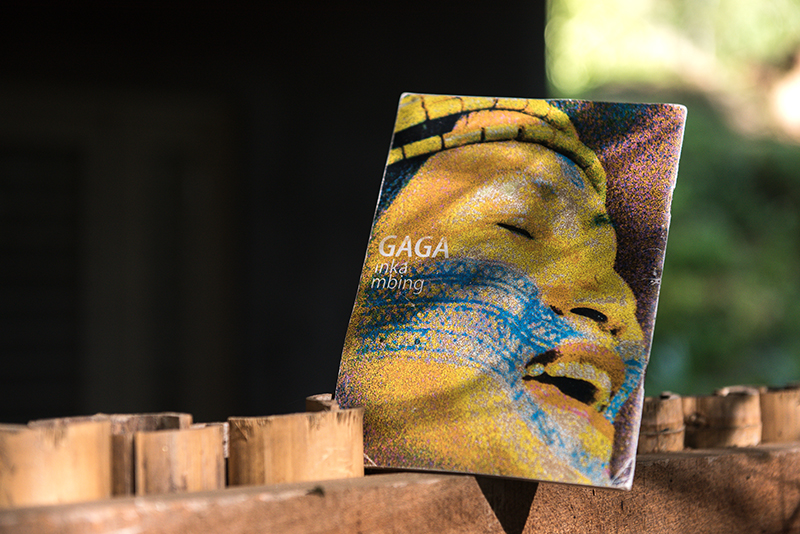
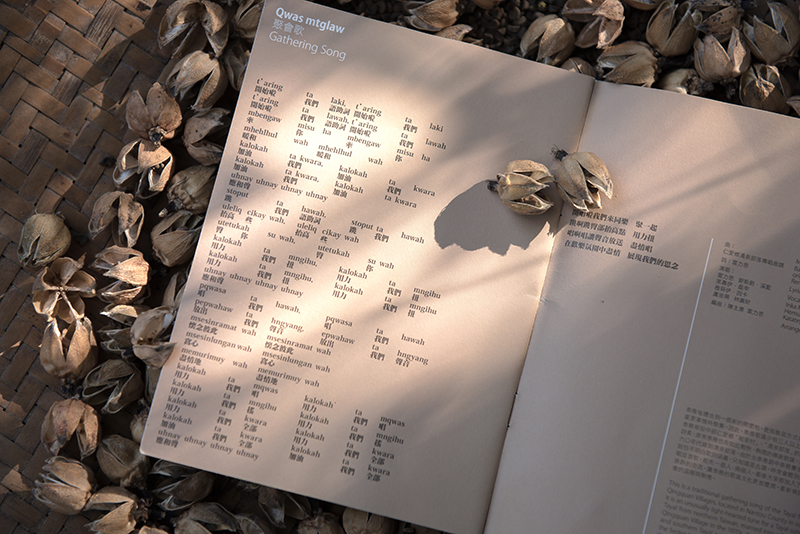
All of the data she collected and compiled became her album released in 2008, “Ga-ga”, and won the Golden Melody Award for Best Indigenous Singer - Vocal Category the next year. “gaga” is the collective rules and customs of the Atayal people, the law to co-exist in harmony with nature. Over the years, Inka Mbing took all of her rage towards the injustice and unfairness of the society, her sympathy towards her people for the insult they endured, and lament for the gradual loss of their indigenous culture, and channeled them into her powerful vocal, so that her emotions may roam freely in the mountains.
“There is nothing romantic about my music, it’s all about the nature and earth.” Inka Mbing says, her music is inspired by observing the women in her community. For example, the “Weaving Song” tells of her childhood memory of the beautiful figure of her grandma weaving; “Missing my Home” describes how an Atayal lady misses home after getting married far, far away from home, and portrays the laborious life women in the community repeats day after day.
Six years ago, Inka Mbing moved back to her indigenous community. Over the years, she concentrated on teaching her native language, and could be seen in Shui Tien in Hsinchu, Ulay in Taipei, Faxiang in Nantou, and even Smangus. Inka Mbing teaches the children to think, talk and chant in their native language, and they wrote songs together, a total of 15 nursery rhymes were collected and published in the album “Inka Mbing and her young Atayal friend / Ima lalu su”, released in 2014. The creative gem of her and the children became the best tool for teaching children to sing at schools.
Nowadays Inka Mbing rarely performs publicly, but by passing on the songs and language, she is evermore determined in her journey of practicing the gaga.
